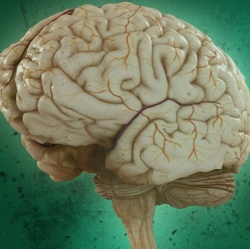
In a collaboration involving 13 institutions around the world, researchers have now broken new ground in understanding the underlying causes of autism. The results are being published in Cell magazine July 3, 2014: "Disruptive CHD8 Mutations Define a Subtype of Autism in Early Development."
"We finally got a clear cut case of an autism specific gene," said Raphael Bernier, the lead author, and UW associate professor in the Department of Psychiatry and Behavioral Sciences and the clinical director of the Autism Center at Seattle Children’s. Bernier said people with a mutation in the CHD8 gene have a very "strong likelihood" that they will have autism marked by gastrointestinal disorders, a larger head and wide set eyes.
In their study of 6,176 children with autism spectrum disorder, researchers found 15 had a CHD8 mutation and all these cases had similar characteristics in appearance and issues with sleep disturbance and gastrointestinal problems.
Bernier and his team interviewed all 15 cases with CHD8 mutations. To confirm the findings, researchers worked with scientists at Duke University who do zebra fish modeling. The researchers disrupted the CHD8 gene in the fish and the fish developed large heads and wide set eyes. They then fed the fish fluorescent pellets and found that the fish had problems discarding food waste and were constipated.
Bernier said this is the first time researchers have shown a definitive cause of autism to a genetic mutation. Previously identified genetic events like Fragile X, which account for a greater number of autism cases, are associated with other impairments, such as intellectual disability, more than autism. Although less than half a percent of all kids will have this kind of autism related to the CHD8 mutation, Bernier said there are lots of implications from this study.
